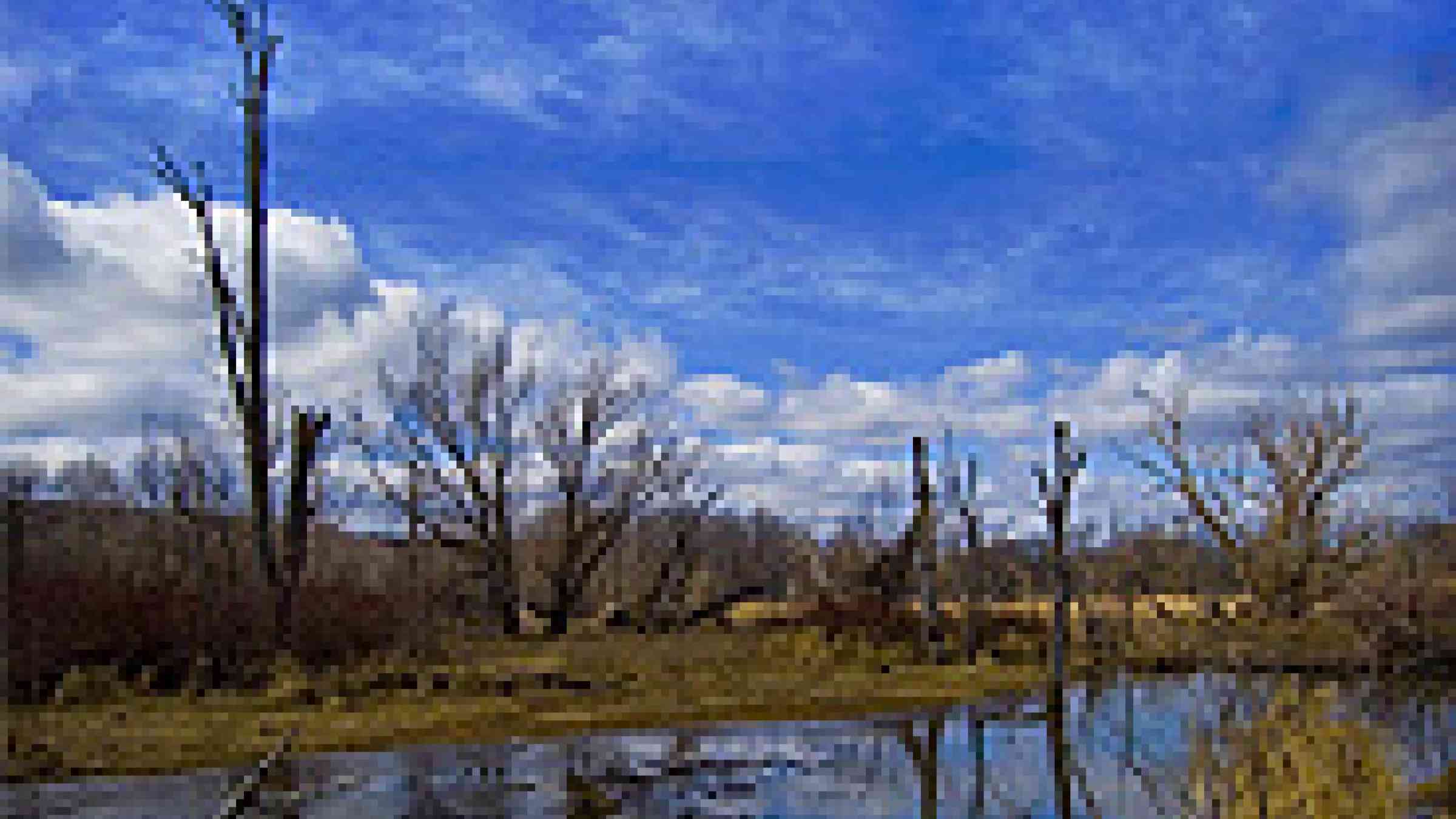Please help us improve PreventionWeb by taking this brief survey. Your input will allow us to better serve the needs of the DRR community.
World Wetlands day: Caring for wetlands – an answer to climate change

Photo by Flickr user, Big Slow, Creative Commons Attribution-Noncommercial 2.0 Generic
Message from Dr. Ahmed Djoghlaf, Executive Secretary of the Convention on Biological Diversity on the occasion of World Wetlands day, 2 February 2010.
This year’s theme of the World Wetland Day, Caring for wetlands – an answer to climate change, highlights the opportunity to manage biodiversity wisely to help us cope with an environmental issue at the forefront of the public and political agendas. This is an issue of particular relevance in 2010, the International Year of Biodiversity
The Intergovernmental Panel on Climate Change (IPCC) has concluded that most of the main impacts of climate change on ecosystems and people will be felt through changes in the Earth’s water cycle.
Wetlands are therefore particularly vulnerable to these changes, and the third Global Biodiversity Outlook, to be released by the Secretariat of the Convention on Biological Diversity (CBD) in May 2010, will also confirm that they are amongst the most threatened ecosystems.
The ecosystem services provided by wetlands place them at the forefront of our response options to climate change.
Wetlands play a key role in combating the emission of greenhouse gases – the primary driver of climate change.
Although wetlands cover only six per cent of the Earth’s land surface they store about 35% of global terrestrial carbon.
Peatlands are the most efficient carbon stores of all terrestrial ecosystems. They store twice the carbon present in forest biomass of the world and their storage is very long term, contrary to forests.
Many wetlands also store large quantities of methane, a particularly potent greenhouse gas.
Caring for them better is a sensible, and often cost-effective, way to reduce these emissions.
But healthy wetlands also play a central role in regulating the water cycle.
There is evidence that climate change is already increasing the incidence of drought and floods.
The costs associated with these impacts are high.
Natural disasters, – which are mostly water-related, cause in general a sustained 14% reduction in the GDP of low-income countries, and individual disasters can elevate this impact.
Related costs are $500 billion per annum in richer nations.
Destructive floods all over the world have led to record high material damage.
For example, in China in 1996 and 1998, the damage caused was estimated at $26 and $30 billion respectively.
In Ethiopia, the inability to tackle hydrological variability has been estimated to cause a 38% decline in GDP and, for the period 2003–2015, a projected 25% increase in poverty.
More than 7,000 major disasters have been recorded since 1970, killing at least 2.5 million people and causing at least $2 trillion damage.
Hence the disaster-risk-reduction properties of wetlands place them amongst the most precious of our ecosystems.
A recent study in the United States, for example, valued the risk-reduction benefit provided by wetlands at $33,000 per hectare for a single storm event, not including the value of other services provided.
There is good news, however.
The fourth national reports under the Convention on Biological Diversity show that many Parties to the CBD have recognized that the loss of wetland services has increased their vulnerability to weather extremes, at considerable economic cost.
This has prompted increasing attention to wetland rehabilitation, demonstrating that we are learning the lesson that we should engineer our responses to climate change by working with nature, not against it.
The ninth meeting of the Conference of the Parties to the CBD held in Bonn, Germany, from 19 to 30 May 2008, recognized the Ramsar Convention’s pre-eminent leadership in relation to wetlands and, in particular, the need for strengthened scientific and policy guidance regarding their role in climate change.
As the strong partnership between the CBD and the Ramsar Convention continues to flourish, I have every confidence that the messages of today will carry forward to the tenth meeting of the Conference of the Parties to the Convention on Biological Diversity to be held in Nagoya, Japan, from 18 to 29 October 2010.
This historic meeting will set the stage for our collective actions for the period beyond 2010.
In this context, Caring forwetlands – an answer to climate change reaffirms the strong message that the conservation of biodiversity and the needs of people are intimately tied.
Explore further
Please note: Content is displayed as last posted by a PreventionWeb community member or editor. The views expressed therein are not necessarily those of UNDRR, PreventionWeb, or its sponsors. See our terms of use
Is this page useful?
Yes No Report an issue on this pageThank you. If you have 2 minutes, we would benefit from additional feedback (link opens in a new window).